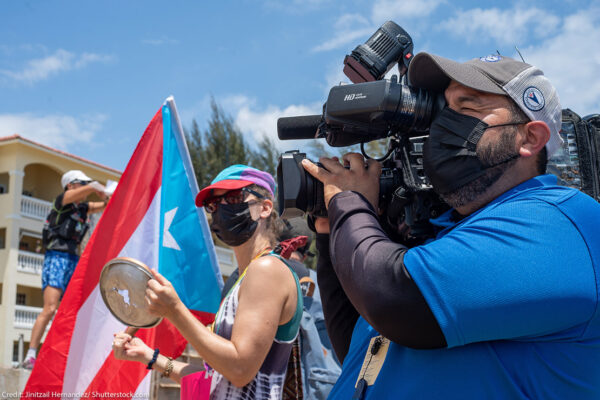ACLU Sues Seattle Police for Withholding Key WTO Document
FOR IMMEDIATE RELEASE
SEATTLE -- The American Civil Liberties Union of Washington today filed a lawsuit against the Seattle Police Department for failing to disclose a key document relating to police enforcement of the City's "no protest zone" during the World Trade Organization demonstrations in 1999.
"The Public Disclosure Act is intended to ensure the public's right to know what our government is doing," said Kathleen Taylor, Executive Director of the ACLU of Washington. "Public documents must be released even when the information may prove embarrassing to the government."
The lawsuit asks the court to impose penalties on the Police Department for withholding a document requested by the ACLU under the Washington Public Disclosure Act as part of its investigation of the City of Seattle's response to WTO.
On December 1, 1999, the Seattle Police Department's Assistant Chief Harvey Ferguson issued an Operations Order describing how officers were to enforce the Mayor's WTO Emergency Order No. 3, which established a "no protest zone."
The Ferguson Order says that, "Vehicles and/or pedestrians ... are authorized access inside the perimeter if they have a reasonable purpose for entering the perimeter. A reasonable purpose includes work, shopping at a specific location within the perimeter, or other like type reasonable activity. ... Each post has the additional mission of alerting the demonstration management platoons if groups of demonstrators approach their location."
However, during oral argument on the same day, in a lawsuit challenging the "no protest zone" (ACLU v. City of Seattle), the City claimed, "Shoppers, casual shoppers, are not permitted entry. Casual restaurant goers, window shoppers are not permitted entry."
On December 6, 1999, the ACLU sent a letter to the Mayor's office and the Chief of Police asking for any documents containing instructions for enforcing the emergency orders. The Department released nine documents but did not release the Ferguson Order.
Surprised that there seemed to be so little information on enforcement of the "no protest zone," the ACLU sent a follow-up letter on January 5, 2000 asking for confirmation that no other relevant documents existed. The Seattle Police Department responded on January 14, by saying, "Please accept this as written confirmation of that fact: there are no other documents ... which contain instructions to officers about how to enforce the mayor's proclamations."
The requested document was never provided directly to the ACLU. Rather, the ACLU only learned of the Ferguson Order's existence in December 2000 -- a year after it was requested -- after it had been provided to the City Council's WTO Accountability Review Committee. The Committee had received the document, not from the Seattle Police Department, but in response to a public disclosure request it made to the Washington State Patrol.
The ACLU lawsuit alleges that the SPD's failure to release the Ferguson Order to the ACLU is a clear violation of the state Public Disclosure Act. If documents responsive to a public disclosure request exist, an agency must either make them available or explain what legal grounds exist for an exemption from disclosure. The Act states that the law "shall be liberally construed and its exemptions narrowly construed to promote this public policy" of full disclosure.
As the Washington Supreme Court stated in the 1994 PAWS v. University of Washington case, the Act "clearly and emphatically prohibits silent withholding by agencies of records relevant to a public records request."
"It is hard to believe that the failure to provide ACLU with the key Ferguson order was simply an administrative oversight," Taylor said. "And even if it were, negligence is not a valid excuse for failing to provide a document."
ACLU cooperating attorneys for this case are Scott Johnson and Laura Buckland.


